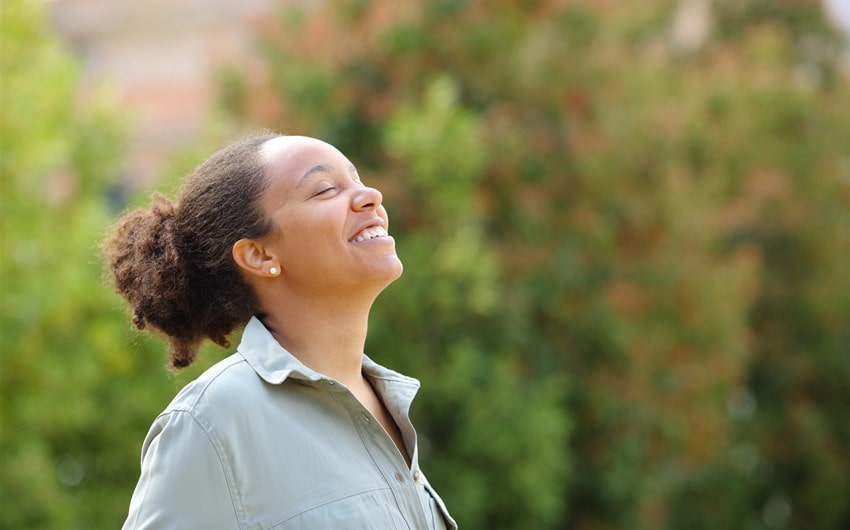Tiny Joys That Help Me Feel Like Myself Again—Even on the Hardest Days
You don’t always need a grand transformation. Sometimes, what you need most is a tiny reminder that you still exist. That you’re still in there—beneath the noise, the tiredness, the numbness. Tiny joys won’t fix everything. But they can whisper, “I’m still here.” And on some days, that’s everything.
1. Warm mugs and slow mornings: rituals of emotional grounding
When life feels overwhelming, your nervous system craves safety. A warm mug—tea, coffee, broth—becomes more than a beverage. It’s a ritual of regulation. The heat in your hands, the familiar scent, the first sip—it all signals to your body: you’re safe enough to pause.
Pair this with a few minutes of silence. No scrolling. No racing thoughts. Just you and the cup. It becomes a kind of presence practice. You don’t have to perform. You don’t even have to think. You just have to sip. Let this simple ritual remind you that you’re allowed to begin slowly, and gently.
2. Standing in sunlight or fresh air: reconnecting with your sensory self
Disconnection from joy often begins with disconnection from the body. And nothing brings you back faster than standing in sunlight or stepping outside, even briefly. Light regulates your circadian rhythm, improves mood, and stimulates vitamin D. But more than that—it reminds you that you belong in the world.
Let yourself notice the texture of air on your skin. Feel the temperature shift. Observe the play of shadow and light. Even if it’s cloudy, nature still moves. Let it move you. Let your body remember that being alive includes wonder—even if it’s quiet.
3. Music as medicine: letting sound hold your emotions
There are moments when words fail. When you don’t know how to describe what you’re feeling—or if you’re feeling anything at all. That’s where music steps in. It bypasses the thinking brain and speaks directly to emotion.
Create playlists for different states: one for softness, one for grief, one for energy, one for grounding. Let the music match you where you are instead of forcing you somewhere else. Sing if you can. Dance if you want. But even if you just sit and listen, that’s enough. You’re letting yourself be witnessed—by melody, by vibration, by memory.
4. Changing your clothes to reflect who you want to remember
It might seem superficial, but changing your clothes can be an act of reclamation. When you’re emotionally distant from yourself, your appearance often mirrors it: unwashed hair, the same hoodie for days, mismatched socks. There’s no shame in this. But shifting what you wear can gently shift how you feel.
Choose an outfit that feels like the you that you miss—not performative, just familiar. Maybe it’s cozy. Maybe it’s bold. Maybe it’s a shade of lipstick you haven’t touched in months. This is not about being “presentable.” It’s about being recognizable to yourself.
5. Writing anything—without pressure to be profound
When your identity feels blurry, writing becomes a mirror. It doesn’t need to be poetic. It just needs to be honest. A single sentence can reconnect you to your inner world. It can remind you: I have thoughts. I have a voice. I still exist.
Try this:
- Start with “Right now, I feel…” and let the rest come naturally.
- Write a letter to your future self—even if it’s just two lines.
- Make a list of everything you see, hear, smell, or feel in the moment.
This isn’t about journaling for insight. It’s about anchoring. The act of putting pen to paper (or fingers to keyboard) becomes a bridge from disconnection to presence.
6. Completing one small task: the quiet dignity of completion
When you feel emotionally scattered, unfinished things amplify the chaos. So instead of trying to “catch up,” choose one small task and do it fully. Fold the towel. Water the plant. Answer one email. Light a candle and blow it out with intention.
This gives your mind a moment of closure. It tells your body: I can finish something. I can follow through. I still have agency, even in the smallest ways. And that agency rebuilds trust in yourself—slowly, quietly, powerfully.
7. Talking to someone who sees your essence—not just your roles
We all need someone who sees us beneath the layers: beneath the exhaustion, the people-pleasing, the roles we perform. When you talk to that person—whether it’s a friend, a therapist, or someone online—you’re reminded of your emotional reflection.
These conversations don’t need to be deep. Sometimes a meme exchange or a single “thinking of you” text is enough to restore the feeling that you matter. Connection doesn’t always have to fix you. It just needs to find you.
Let yourself be found. Let someone witness your quiet return to yourself.
8. Touching something textured: grounding through the senses
Trauma and stress often pull you into your head. Touch brings you back. Hold a smooth stone. Rub essential oil between your palms. Run your fingers over fabric, water, tree bark, or your own wrist. These are all forms of sensory grounding.
They work because they remind your brain that you are here. That you are safe. That you are physical and whole. Don’t underestimate the power of five seconds spent touching something real. Sensory re-engagement is how your nervous system begins to trust the moment again.
9. Looking at beauty without consuming it
In a world built on consumption, you’ve been conditioned to look at things in terms of ownership. But there’s a different kind of joy—the kind that comes from looking at something beautiful and not needing to possess it. A flower. A painting. A pair of earrings you don’t buy. A sunset.
This kind of beauty reminds you that you are not empty because you lack something. You are whole because you can still see wonder. You are still a witness. And witnessing is a form of returning.
10. Saying, “This is enough,” even when it doesn’t feel like it
On the hardest days, even tiny joys can feel too small. You might think, “How could this possibly help?” But showing up for one thing—one light, one breath, one detail—is enough to interrupt the spiral. It’s not about escaping your pain. It’s about inviting a pause. A softness. A breath of your own humanity.
Say to yourself: “This cup of tea is enough right now.” “This song is enough.” “This breath is enough.” And then believe it. Let that be the starting place—not the finish line, but the first step back to wholeness.
Tiny joys are a form of resistance, remembrance, and repair
You don’t need to be okay to start showing up. You don’t need to feel fully whole to touch beauty. These small acts—tiny joys—are the way you begin to re-thread the connection to yourself. Not by forcing happiness, but by remembering that you are allowed to feel even the faintest flicker of light.
You’re not lost. You’re healing. And healing often begins with the softest of things.






